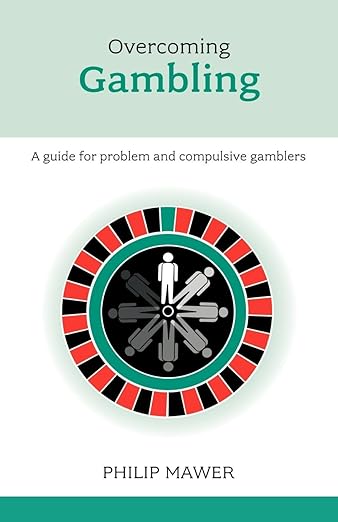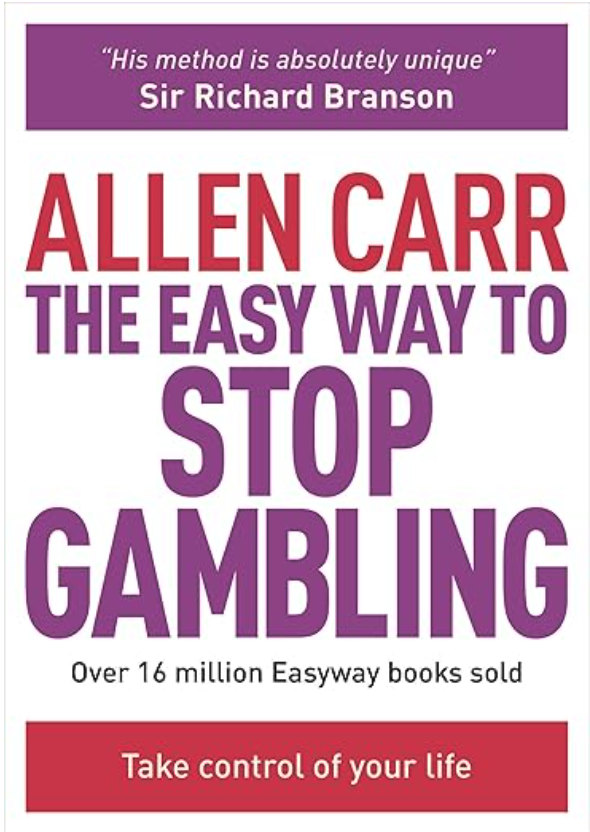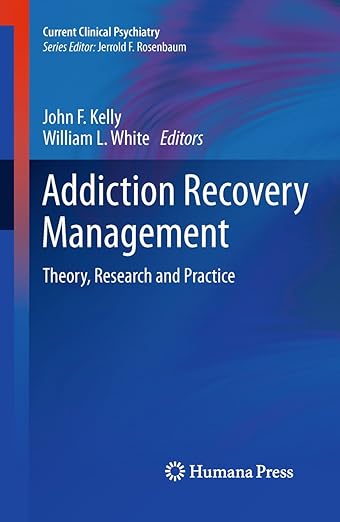What’s the real difference between gambling addiction vs problem gambling? While both involve harmful betting behaviors, understanding how they differ can be a critical step in getting the right kind of help. At High Stakes Healing, we believe that knowing the distinction empowers people to seek support earlier—and with less shame.
NOTE: Please know that some links on High Stakes Healing are affiliate links. This means we may earn a commission if you make a purchase, at no added cost to you. These small contributions allow us to provide articles, tools, and support to those in recovery, while recommending only the resources we genuinely value.
What Is Gambling Addiction?
Gambling addiction—also known as compulsive gambling or gambling disorder—is a diagnosable mental health condition listed in the DSM-5. It shares many characteristics with substance addiction, including compulsive behavior, emotional dependence, and long-term negative consequences.
Common signs of gambling addiction include:
- Inability to stop despite serious consequences
- Lying to others about gambling behavior
- Gambling with increasing amounts of money to feel the same rush
- Feeling anxious, restless, or irritable when not gambling
- Using gambling to escape problems or emotional pain
- Neglecting responsibilities, relationships, or self-care
This behavior pattern is persistent and often progressive without intervention. Gambling addiction is not just “bad behavior”—it’s a health issue that often requires therapeutic treatment and support.
Professional Support Anytime
Recovery doesn’t have to be faced alone. With Online-Therapy.com,
you can connect with licensed therapists from the comfort of home and work through gambling addiction at your own pace.
What Is Problem Gambling?
Problem gambling refers to a pattern of gambling that causes harm but doesn’t necessarily meet the full clinical criteria for addiction. People experiencing problem gambling may still have some control, but are beginning to feel its emotional, financial, or relational toll.
Signs of problem gambling include:
- Occasional regret or guilt after gambling
- Chasing losses to “make up” for previous bets
- Using gambling to cope with stress or boredom
- Borrowing money to gamble—but still managing to pay it back
- Noticing mood changes or conflict around gambling
Problem gambling is often an early warning sign. With the right awareness and support, it can be addressed before it escalates into addiction.
Gambling Addiction vs Problem Gambling: Key Differences
The main difference between gambling addiction vs problem gambling lies in control and consequences. Here’s a side-by-side comparison:
| Aspect | Problem Gambling | Gambling Addiction |
|---|---|---|
| Level of Control | Some control remains | Significant loss of control |
| Frequency | Occasional or triggered episodes | Frequent, compulsive behavior |
| Impact on Life | Moderate emotional or financial harm | Severe life disruption |
| Emotional Motivation | Relief, excitement, boredom | Obsession, emotional escape |
Knowing these distinctions can help individuals or loved ones recognize the severity of their situation and take appropriate steps toward healing.
Gambling Addiction vs Problem Gambling: Why the Distinction Matters
Many people avoid seeking help because they believe their gambling “isn’t that bad.” But both problem gambling and addiction can deeply affect mental health, finances, and relationships.
Here’s why identifying where you are on the spectrum matters:
- Early intervention: Catch issues before they deepen
- Personalized support: Choose the right kind of help
- Shame reduction: Understand it’s a health challenge, not a moral failure
Regardless of the label, what matters most is that you or your loved one feel seen, supported, and equipped to begin recovery.
Start Healing—No Matter Where You Are
You don’t need to wait for rock bottom. If gambling is causing distress in your life—even occasionally—you deserve support. Whether you relate more to problem gambling or gambling addiction, there are effective tools to help you regain control.
Consider these paths:
- Therapy with a counselor who specializes in gambling recovery
If you’re a student balancing academics with recovery, exploring student gambling recovery and finding balance in school and life can offer practical guidance tailored to the unique pressures of school and young adulthood.
- Online support groups with people who understand what you’re going through
For many, joining a gambling support group changed their recovery journey because it provided a safe space to share struggles and learn from others walking a similar path. These connections often make the difference between feeling isolated and finding hope.
- Journaling, mindfulness, and self-regulation tools
Recovery isn’t limited to what happens inside formal rehab programs—it also thrives in everyday life. Building resilience and discipline outside formal rehab programs means practicing healthier routines, setting boundaries with triggers, and cultivating supportive relationships that reinforce your progress.
- Read books that help you understand your situation
These books explain the psychology of compulsive gambling, why the brain craves risk and reward, and how to break free from destructive cycles. If you’re newly aware of the problem or want to understand a loved one’s struggles, you might also explore our guide on what gambling addiction really means for deeper insight.
FAQs: Gambling Addiction vs Problem Gambling
Is gambling addiction worse than problem gambling?
Not necessarily—it’s about severity, not worth. Gambling addiction tends to involve more severe consequences and a greater loss of control. But problem gambling can still be emotionally and financially damaging. Both deserve attention and care.
Can problem gambling turn into gambling addiction?
Yes. Without intervention, problem gambling can escalate into full-blown addiction. This is why early recognition and support are crucial.
Do I have to gamble every day to be considered addicted?
No. Gambling addiction is about the impact on your life and the loss of control—not frequency alone. Even occasional binges can signal an addiction if they lead to significant harm.
What should I do if I’m not sure which category I fall into?
Start by reflecting on your gambling patterns and how they impact your emotions, relationships, and finances. Consider speaking with a professional.
Start Your Healing Journey
If you’re ready to start your own recovery, join our compassionate gambling recovery platform for healing and renewal.
Explore More Recovery Resources
Healing from gambling starts with knowledge and connection. Here are other articles to deepen your understanding and support your next steps:
- Healing Habits and Structured Plans from the Recovery Toolkit
- Recognizing the Types of Gambling Problems in Everyday Life
- Financial Gambling Addiction Warning Signs you Shouldn’t Ignore
- How to Pause the Spiral and Reset after Relapse
- Recognizing Shame and Denial in Gambling Recovery Journey
- Identify Gambling Problems
- The Illusion of Control in Gambling Recovery
- Lottery Ticket Addiction and Breaking Free From the Endless Chase
Each journey is different—but you’re not alone. Keep exploring, take the next step towards Recovery Planning for Gambling Addiction.








